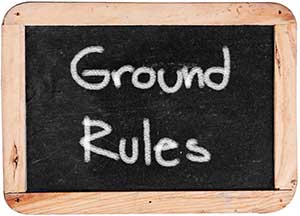Several days back, I was invited to facilitate a six-hour corporate training about Better Team Communication. My participants were twelve personnel of the Medical department or unit of a foreign embassy in the Philippines.
This department’s function is to provide medical assistance of all types to citizens of the country they work for who are living and working in the country. The team is relatively small and only has twelve staff.
It was interesting to be told what their training need on this aspect given their team’s size so I needed to ask one of the point persons to explain further what their expectations of the program are and why they had called for such an intervention to begin with.
After my training needs analysis and the point person’s cooperation, the following were determined:
- There can be conflicts between the nurses’ group and the administrative staff due to conflicting or overlapping tasks.
- Another would be a lack of alignment among the members as regards how exactly they should carry out their tasks because either party demands a lot from each other in the absence of effective communication and mutual understanding.
- The last area for improvement that the training needed to help resolve is cross-cultural communication barrier between the Filipino staff and their American superiors.
With the goal and objectives of the training intervention in mind, I then customized our default program on Better Team Communication and designed a corporate training agenda that addresses or helps them resolve their own areas of opportunities.
After spending six hours with them, facilitating interactive discussions on the significant topics covered, and conducting activities and games centered on teamwork, conflict resolution, effective communication, and camaraderie, it was fulfilling to see that they didn’t only learn, but they had so much fun playing, discussing, and learning together as well.
Now, with this article, I thought it would help others too if I share the concepts and guidelines about improving team communication that I had discussed with them.
Below are the time-proven strategies in bettering team communication that, fortunately, they found realizations from.
1. The true meaning of the word team is Truly Effective and Affectionate Mutual Effort.
A genuine team is one that despite differences, still functions as one. Despite variations with their roles on the team and the expected outcomes and outputs from them, members still manage to work well together to accomplish the very reasons why they do what they do and why they have to work together in a very effective manner.
However, team effectiveness is not the only key to a genuine team. There are some teams who perform and exceed standards, but when each member is asked if they’re happy with the people they work with, they would surely not respond with a positive answer.
Another significant aspect of a genuine team is when people sincerely care for each other. The relationships don’t necessarily have to be like that of siblings, but at least, what you see is what you get. People don’t backbite. Members help one another. They acknowledge and understand each individual or department’s roles and respect them.
2. A true team has members who know when to give in and give way in the name of prioritization and efficiency.
Like in our sample team’s case, members from different teams end up misunderstanding one another because they simply don’t care about other people and whether they’re having difficulties or not. In simplest terms, we call that selfishness or self-centeredness.
If people desire to communicate better and function more effectively together, they should learn and apply what I call empathetic cooperation. Unless others take the initiative to put themselves in other people’s shoes, they wouldn’t give a damn what others see, feel, or experience. They would just mind their own business. They would just insensitively demand action from others without regard for their sufferings.
A team culture where people talk in every sense of the word is needed to improve team communication. When a group of people needs help from another group, they need to communicate truthfully, transparently, and thoroughly. They have to explain in detail what assistance they need and they also have to justify why it’s important that they get it. It’s also helpful that they arrive at what they will mutually agree on instead of selfishly demanding assistance without getting the other party’s buy-in.
3. The best tool in enhancing or correcting team communication is setting the right expectations the right way.
The best way to improve team communication is to be proactive. When I say proactive, I mean negative repercussions of lack of communication and teamwork like conflicts, misunderstandings, misjudgments, and the like can be prevented if people are just used to setting the right expectations with one another the proper way.
When different people from various teams have to work together or when one person needs support from another, both should exchange expectations about what kind of help they need, why they need it, what they can contribute even if they’re the one who seeks help, how they could return the favor in the future, how they can share responsibilities, accountability, and authority, and what one another’s strengths and areas for improvement that they can complement during the helping stage.
Once again, teamwork is not that complicated. For as long as people talk, ask questions, set expectations, and avoid assuming and judging, team communication is almost always assured.
4. People must know about one another very well and deeply for that matter.
The workplace is like a second home. Just like at home, for siblings to see eye to eye, they have to know about one another.
Knowing one another is different from knowing ABOUT one another. When one knows another person on any team, he might just know his name, whom he reports to, what department he belongs to, what he does, and how long he’s been working in the company for. On the other hand, when he knows ABOUT others, it’s like there’s a deeper connection because the relationship, while it doesn’t necessarily have to be on a personal level, goes beyond what’s on the surface and even taps into attitudinal and behavioral chemistry.
For workplace colleagues to be better team players, it is advisable that they initiate to get to know more about one another and determine their individual communication, learning, and working styles.
Communication styles or preferences refer to people’s dominant way of communicating with other people and being communicated to. This should be determined so people would understand and respect why other people are quiet, why others are too expressive, why some are annoyingly expressive, and why others are unpredictably a mix of all these. When these are known, people become more careful with how they approach others and how they converse with them.
Learning styles or preferences pertain to people’s stronger or preferential manner by which they acquire knowledge, learn skills, and refine their attitude. This is another important personality factor that must be introduced to others or others must dare to know so they comprehend best how other people learn fast and easily. Finding out people’s learning styles is instrumental in giving and taking instructions, teaching and learning, and assigning tasks to one another.
Working styles or preferences, lastly, are a person’s distinct behavior that describes how he works and how he achieves results in the workplace. For people to communicate better and blend well on any team, they must ascertain and give courtesy to these unique characteristics of people. Why do people slouch on their chairs when they work? Are they lazy or they just like it better that way? Why do others talk less or never at all? Are they surly or do they just want to prioritize and focus? The keyword in team communication is respect.
5. Since we just talked about respect, the fifth proven strategy in bettering team communication is respecting people’s four (4) Ps.
Remember this. No two persons are exactly alike. One of the root causes of people arguing, conflicts arising, or grudges developing is that people don’t know, acknowledge, appreciate, and apply other people’s different PERSONALITIES, PREFERENCES, PRIORITIES, AND PRINCIPLES.
Personalities
People have different characters. We have to accept that. Why you and I are what we are is because we have our own personalities. If these personalities are stepped on or if others force us to change overnight or to change to that we can’t be, we would feel disrespected. That always leads to not-so-good things that affect the synergy of the team.
Preferences
A preference is a stronger liking for one option over another. It is normal and expected for people to have contrasting preferences. As mentioned, people have different styles or preferences in communicating, learning, and working. It is very and highly recommended for these to be known and leveraged so there’s peace at work and so as to avoid pointless debates and profitless conflicts.
Principles
We all have our own beliefs that we support, protect, and stand up for. While some beliefs are wrong and detrimental and have to be corrected or improved, as far as achieving work-related goals and objectives are concerned, there are personal beliefs like religion, opinions, and guiding principles that have to be respected. It’s wrong to compare ourselves with other people because they’re not us and vice-versa. If there are things we can’t agree on, the best way all the time is to meet halfway or to arrive at trade-offs or compromises.
Last but not least, Priorities
Why is it that some people want to be promoted and others are just content where they are? Why do some of our co-workers take the initiative to render overtime, even when not mandated, while others look like they don’t have to do it and just go home right away? Why do some of our teammates always tag along when we have out-of-office hangouts while others look like they don’t care and always have the reasons not to go? Be careful with misjudging and assuming. It might not always mean they don’t care, they don’t have dreams, or they’re bad team players.
Most certainly, what you want them to do is just not their priority. If you are single, you might not have a lot of things to worry about compared to co-workers who are parents. If you are lucky to be born in a rich family, some of your co-workers may not have as much money as you do to spend going out with you and would just rather spend quality time with loved ones at home.
Again, people have different priorities that have to be understood. For as long as everybody still manages to do his part and contributes fairly, it shouldn’t be a big deal and should not be made a basis for qualifying as a good team player.
The keys to a better team communication, teamwork, and camaraderie are sincerity, respect, trust, and communication. If the people in question that we referred to in this article would put to practice these elements of effective communication, they wouldn’t have to worry about requesting another team building seminar from me.
Individuals often argue not just because of differing opinions, but because they don’t share the same life vision and thus, fail to carry out the same mission.
——————————————————————————————————————————————–
If you would like to work with us with your corporate training, professional speaking, consulting, mentoring, coaching, or team building need on teamwork, team communication, conflict resolution, camaraderie, and the like, please drop us a line at (02) 919-2734 or send us an email at info@mssbizsolutions.com.
To check right away our existing training programs on these topics, please click the links below:
Effective Communication Training in the Philippines
Effective Interpersonal Communication Training in the Philippines
Effective Workplace Communication Training in the Philippines








Add Comment